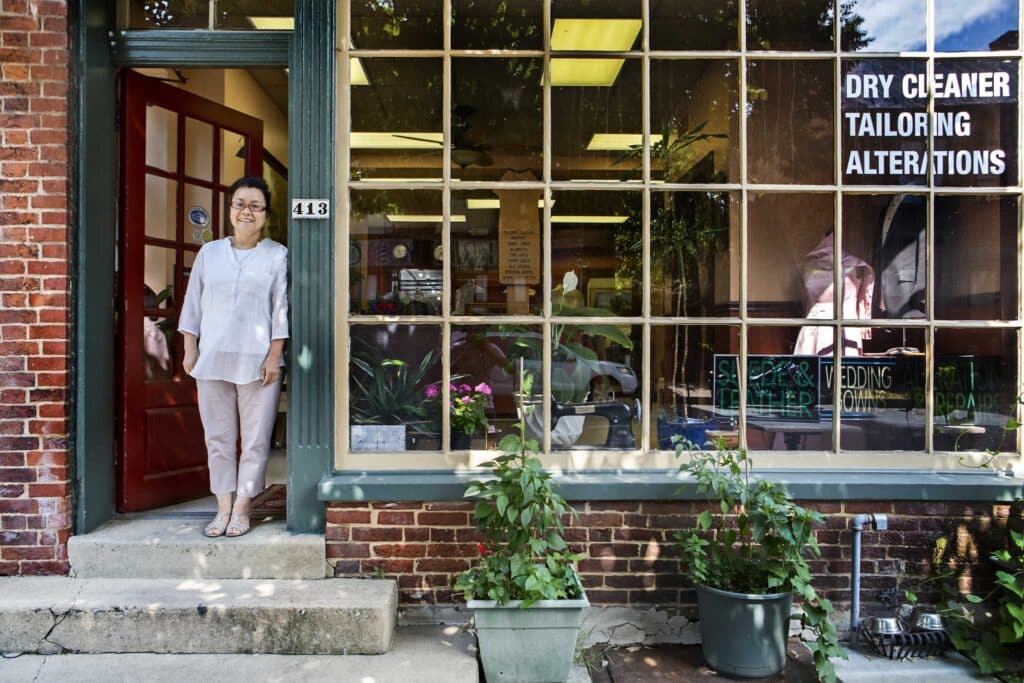
Communities that attract a range of cultures and talents don’t crop up by chance. Rather, communities that are consciously inclusive—like those in the Maryland National Capital Region—provide the framework for people to thrive. In our region, diversity and aptitude go hand in hand, as we’re home to one of the most racially diverse, most educated populations in the country. In our region, approximately 47% of residents ages 25-64 hold bachelor’s degrees at a minimum, compared to a national average of 36%.[1] Furthering the narrative, Maryland and Washington, D.C. ranked #4 and #5 on the 2020 U.S. Census Highest Diversity Index (DI). The diversity index is the chance that two people, chosen at random, will come from different ethnic or racial groups. Maryland’s DI is 67.3% and D.C. ‘s is 67.2%, both of which represent a 5+ percentage point jump since the 2010 U.S. Census.
The takeaway is: diversity is great for the economy. A variety of experiences and vantage points improve decision making, collaboration and innovation. People excel in the personal and professional spaces where they feel a sense of belonging. Our blog spotlights the Maryland National Capital Region’s hot spots attracting diverse talent and providing opportunities for achievement.
Montgomery County’s Ethnic Edge
In Montgomery County, 45% of businesses are minority-owned and 1/3 of residents are foreign-born.[2] From targeted assistance for underrepresented businesses to tight-knit business affinity groups, the support is full circle in Montgomery County. Just miles from the nation’s capital, the culture of inclusion starts early. Over 150 languages are spoken by Montgomery County public school students, and language immersion programs begin in elementary school. Top-ranked schools and ethnic eats lead the way, and smart people follow.
Howard County Honors Difference
Howard County leans into multiculturalism, honoring the backgrounds of the people who call it home. Within the county, about 44% of the local population identifies as non-white alone.[3] Heritage food corridors, like the state-designated Korean Way, reflect the growing Asian American influence in the county. Caribbean, Middle Eastern, Hispanic and Soul Food favorites are well represented, too. In 2019 and again in 2020, Forbes recognized Howard County Public Schools as one of America’s Best Employers for Diversity, as inclusion efforts are prioritized within the workplace and in the curriculum. In the business development arena, the BRITE Program at the Maryland Innovation Center provides diverse start-ups with clear pathways to commercialization. Catalyst Fund Loans administered by the Howard County Economic Development Authority offer capital to growing, diverse businesses in the pre-banking stage of development. For businesses lacking the sufficient capital to qualify for loans, the Collateral Assistance Fund helps them qualify and surmount disparity gaps.
Charles County Elevates Equity
Charles County’s Black or African American-identified residents comprise 50.1% of the community, which keeps conversations about identity value-added.[4] From health services to distribution, retail to agribusiness, 93% of local businesses are classified as small. Charles County prioritizes equity in entrepreneurship and procurement, which improves the landscape for diverse businesses. From the Civil War Trail running through the county to the international pride plated up in Waldorf, Charles County’s celebration of diversity isn’t just a brand message; it’s a commitment.
Frederick County Focuses on Inclusion
Winning national accolades for its remote-readiness, arts and innovation scene, Frederick County is broadening achievement opportunities for everyone. Multiculturalism in the county is met with fanfare. Soul Street, a collective of Black entrepreneurs, hosts a vendor market and advocacy events in support of the diverse business community. Along the same lines, The Golden Mile is a gateway of diverse businesses, residences, community gardens and green space that’s revitalizing Route 40. On the economic front, the Frederick County Office of Economic Development (FCOED) hosts an EmPOWER program for underrepresented community businesses. Offering a mentorship program, networking events and a resource toolkit for community employers, EmPOWER helps diverse businesses start and grow.
PG Accelerates Achievement
In Prince George’s County, approximately 72% of residents identify as non-white alone, with Black or African American, Hispanic and Asian American representation leading the way.[5] Prince George’s Economic Development Corporation’s Pathways Program provides diverse small and mid-sized businesses with strategies for financial management, procurement and growth. On campus at Bowie State University, the Bowie Business Innovation Center (BIC) is the only business accelerator headquartered at a historically Black college or university (HBCU), and is America’s first accelerator for minority government contractors. Their co-working environment makes remote work an attractive option for locating talent, and keeps innovation on point. And when it comes to arts and heritage appreciation, Prince George’s County walks the talk. From the Native American settlements at Accokeek Creek to the creative expressions in the Gateway Arts District, cultural appreciation stays top of mind.
Appreciating Diversity in Anne Arundel County
Anne Arundel County is home to more than 590,000 high-achieving residents, many hailing from multicultural backgrounds. Black or African American, Hispanic and Asian American residents shape the diversity story, with executive-level, sales and administrative professions accounting for lead county occupations. Established three years ago, Anne Arundel Economic Development Corporation (AAEDC)’s Inclusive Ventures Program helps diverse businesses maximize opportunity. The Virtual Entrepreneurs Cohort within the program helps business owners customize growth plans to their trajectories, leading to seed grants and other prospects for capital. And on the subject of capitals, Annapolis is deeply rooted in African American history. Our Legacy Tours keep the struggles of the past abundantly present, as do the African Diaspora Festival and MLK Parade held each spring. Come June, Annapolis Arts Week sprinkles local neighborhoods with creativity by providing a platform for cultural appreciation.
People from diverse backgrounds needn’t worry about fitting into the culture here, as our culture fits to our residents. Entrepreneurs, families, foodies and millennials of every origin find their place in the Maryland National Capital Region. Here, diversity makes all the difference.